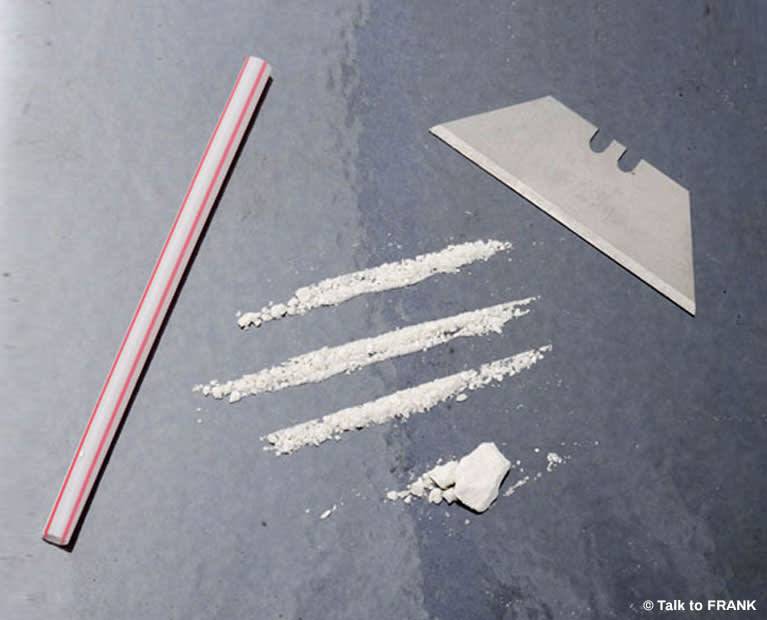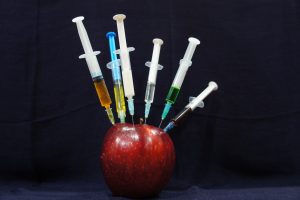Cocaine
Cocaine use has become a very popular aspect of recreational activity, particularly at parties, clubs, pubs, festivals and the social scene. The explosion of use and the availability has made the drug so desirable.
Cocaine has become so common in the music industry, club and DJ world, it seems to be available at every opportunity before, during and after performances. Ravers use it, DJs use it, producers use it, promoters use it, anyone connected to the scene can have access to drugs it seems.
What is it about Cocaine that makes it so attractive?
Cocaine is a very powerful stimulant, so when you use it it can make you feel:
Happy
Excited
Energised
Wide awake
Confident
On top of your game
It can also:
Make your heart beat faster
Raise your body temperature – so you feel hot
Stop you feeling hungry
Make you feel sick
Make you anxious and panicky
Make you paranoid
Make you so confident that you do things you wouldn’t normally do (which might be risky)
The impact on behaviour can result is people becoming chattier, more animated and confident. Sometimes they can come across cocky and arrogant, often agitated, restless and on edge. Increased aggression can also be a feature, particularly if you’re agitated, feeling frustrated or just generally in a bad mood.
Stimulants only enhance the way you feel at the time you take the drug and can result in increased frustration, anger, paranoia, low mood. Trying to use drugs to improve your mood will often only achieve the opposite effect.

Impact
What do we know about the impact of Cocaine?
Apart from the immediate short term effects listed earlier, there are longer-term implications for mental health, physical health, dependency, and society
Mental health
Regular use of cocaine can make people feel:
Depressed
Run-down
Anxious
Paranoid
Cocaine can bring previous mental health problems to the surface, and if a relative has had mental health problems, there might be an increased risk for you.
One of the key features of any drug that gives you a high, it is followed by a low after use. Serotonin and dopamine are depleted as a result of seeking the ultimate pleasure.

Physical health
Cocaine increased heart rate, which can lead to a risk heart attack if you have a heart condition or high blood pressure.
Risk of an overdose if mixed with other drugs or alcohol.
If you snort cocaine you risk damage to nasal passage and cartilage. If you inject cocaine you can damage veins and risk infection or HIV from sharing needles.
Smoking crack cocaine can cause respiratory difficulties.
Using cocaine whilst pregnant can cause a miscarriage, induce premature labour or result in low birth weight.
Mixing cocaine with heroin (speedballing) can be fatal due to overdose. Risks are posed due to having little or no tolerance level for heroin, it only takes a low level to increase the possibility of overdose.
Social life
Frequent users find they begin to crave more of the drug – so it can become an expensive habit to keep up with. some people turn to crime, borrow money or start selling off their possessions to fund the habit.
Your social network becomes connected with the drug making it difficult to socialise without being surrounded by Cocaine.
Can impact on your relationships with family, friends and partners. Cocaine influences the way you behave, can impact on mental health and mood.
Society
Drugs damage local communities, drugs gangs bring violence, intimidation and drug trafficking. Bringing the community down and damaging the local reputation of the people who live there, making it an undesirable and unsafe place to live.
Organised crime is a massive part of the drugs industry, from production through to selling on the street, club, pub, etc. Criminality brings with it undesirable consequences, violence, intimidation, fear, anxiety, and exploitation.
Organised crime networks operate predominantly on fear and intimidation premise. Making massive profits from selling drugs, which is a multi-billion pound industry. OCGs are also involved in people trafficking, illegal gun trade, child exploitation, pornography, and the sex industry. Even the people who grow the crop for cocaine often have no choice.
Dependency
Can you become addicted?
Yes, cocaine is very addictive. This is because regular use changes the way the brain releases dopamine, a brain chemical that makes you feel happy.
Cocaine is mostly known for causing psychological dependence (addiction), but users can sometimes continue to use cocaine just to overcome the negative after-effects of using. This can lead to a binge pattern of use and increase the risk of dependence.
Developing strong cravings for the drug is not uncommon. The psychological connection with having a good time becomes very powerful, and people find it difficult to relax and enjoy social settings without the drug.

DJ-life and cocaine

Cocaine has become an important feature on the club scene and as part of Djs substance of choice.
The dance scene has become synonymous with having a drug and alcohol culture, partying without something to get you in the mood is rare. The same seems to apply to performers, dropping pills, a few shots, a joint or having a few lines to get into the vibe is excepted in the industry.
For many artists, access to drugs and alcohol is part of the business it helps take the edge of any pre-performance stress and helps them relax. Most of the time the supply is free or offered as part of the booking arrangements or DJs bring their own supply along.
Drugs and alcohol for many performers helps overcome;
Performance nerves
Stress
Anxiety
Tiredness
Low mood or to manage depression
Lack of energy
Jet Lag
Sort out a hangover
Boost confidence
The impact on mind, body, and soul can be severe, far from improving any mental health issues it can make things worse, particularly anxiety and depression. Physical tiredness, hungover, washed out, withdrawing, mood changes, headaches, physical health problems. In many situations, drugs are used to manage the comedown, which can result in drifting toward addiction.
More and more stories are emerging from DJs and music artists who have had to resort to seeking help. (Luciano one of the DJs who recently identified the problems that drugs and alcohol played in his eventual need to seek help: DJ Mag 2019) Accessing rehab or therapists to deal with the physical and psychological impact of the business.
The industry needs to take a hard look at the problems and difficulties that can result in what is seen as normal practice. Many DJs are not able to talk freely about these issues openly, because they could be seen in a negative light, the industry can be ruthless in relation to bookings and who is in vogue. Lack of understanding and empathy within the industry can result in problems being either been seen as an individual failing or something that is a rare occurrence.
More help needs to be available and offered, access to advice, support and therapy. Prevention and advice around drugs and alcohol, treatment needs to be of a broader range, not all DJs can afford expensive rehab.
If you are experiencing any of the issues discussed in this blog or would like more information about seeking help you can contact us at outofsynctherapy.com
or Email us at: